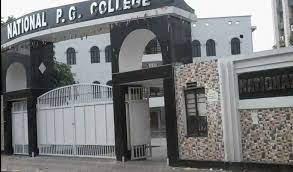Eligibility typically includes a high school diploma or equivalent. Some programs may have specific prerequisites, so it's essential to review individual program requirements. The fee structure varies depending on the institution, location, and program duration.
Eligibility & Fee Structure for Certificate in Forensic Science Course
Forensic science is a multidisciplinary field that plays a critical role in the criminal justice system by providing scientific analysis and evidence in criminal investigations. A Certificate in Forensic Science offers individuals an opportunity to gain foundational knowledge and skills in this field, which can be valuable for career advancement or entry-level positions. In this guide, we will explore the eligibility criteria for enrolling in a Certificate in Forensic Science program and provide insights into the fee structure associated with this certificate.
Certificate in Forensic Science Eligibility Criteria
The eligibility criteria for admission to a Certificate in Forensic Science program can vary depending on the institution offering the certificate. However, there are common prerequisites and qualifications that most programs require. Here are the key eligibility criteria to consider.
-
Educational Background: Typically, applicants are required to have a high school diploma or its equivalent (such as a GED) to be eligible for a Certificate in Forensic Science program. Some programs may have specific academic requirements, so it's important to check the prerequisites of the program you intend to apply for.
-
Age Requirement: There is usually no specific age requirement for enrolling in a certificate program in forensic science. However, applicants must meet the legal age for education in their respective regions.
-
English Proficiency: Since instruction and coursework are often conducted in English, applicants may need to demonstrate proficiency in the English language. This requirement can be met through standardized language proficiency tests like TOEFL or IELTS, or by providing evidence of previous education in English.
-
Criminal Background Check: Some institutions may require applicants to undergo a criminal background check as part of the admission process. This is because individuals with certain criminal convictions may not be eligible for careers in forensic science.
-
Specific Program Requirements: Depending on the program, there may be additional prerequisites or requirements. Some programs may prefer applicants with a background in science or related fields, while others may admit students from various academic backgrounds.
-
Letters of Recommendation (Optional): While not always required, some programs may request letters of recommendation from teachers, professors, or employers to assess an applicant's suitability for the program.
-
Statement of Purpose (Optional): Applicants may be asked to submit a statement of purpose explaining their motivations for pursuing a certificate in forensic science and their career goals.
Fee Structure for Certificate in Forensic Science
Understanding the fee structure is crucial for prospective students to plan for the financial aspects of obtaining a Certificate in Forensic Science. The fee structure for these programs can vary based on several factors, including the institution or college, program duration, location, and whether it is a government-funded or private institution. Here are the key components of the fee structure:
-
Tuition Fees: Tuition fees cover the cost of instruction, access to faculty expertise, academic support services, and course materials. The amount of tuition varies depending on the institution and whether it is a government-funded or private institution. Public institutions may offer lower tuition rates to local residents.
-
Registration Fees: Some programs require students to pay a one-time registration fee when enrolling in the certificate program. This fee is typically non-refundable.
-
Course Materials: Depending on the program, students may need to purchase textbooks, laboratory supplies, or specialized equipment required for coursework.
-
Laboratory and Practical Fees: Forensic science programs often include laboratory work and practical exercises. Students may be required to pay fees to cover the costs of laboratory materials, safety equipment, and consumables.
-
Examination Fees: If the certificate program includes examinations or assessments, students may need to pay additional fees for these evaluations.
-
Graduation and Certification Fees: Graduation fees cover the cost of academic regalia and the certificate itself. These fees are typically paid by graduating students.
-
Online Course Fees (if applicable): If the program offers online courses or distance learning options, there may be additional fees associated with online course delivery and technology support.
-
Transportation and Accommodation (if applicable): For programs that require on-site attendance or fieldwork, students should budget for transportation, accommodation, and related expenses.
 1 Years
1 Years
 Certificate
Certificate
 Science
Science
 Full Time
Full Time





 back
back